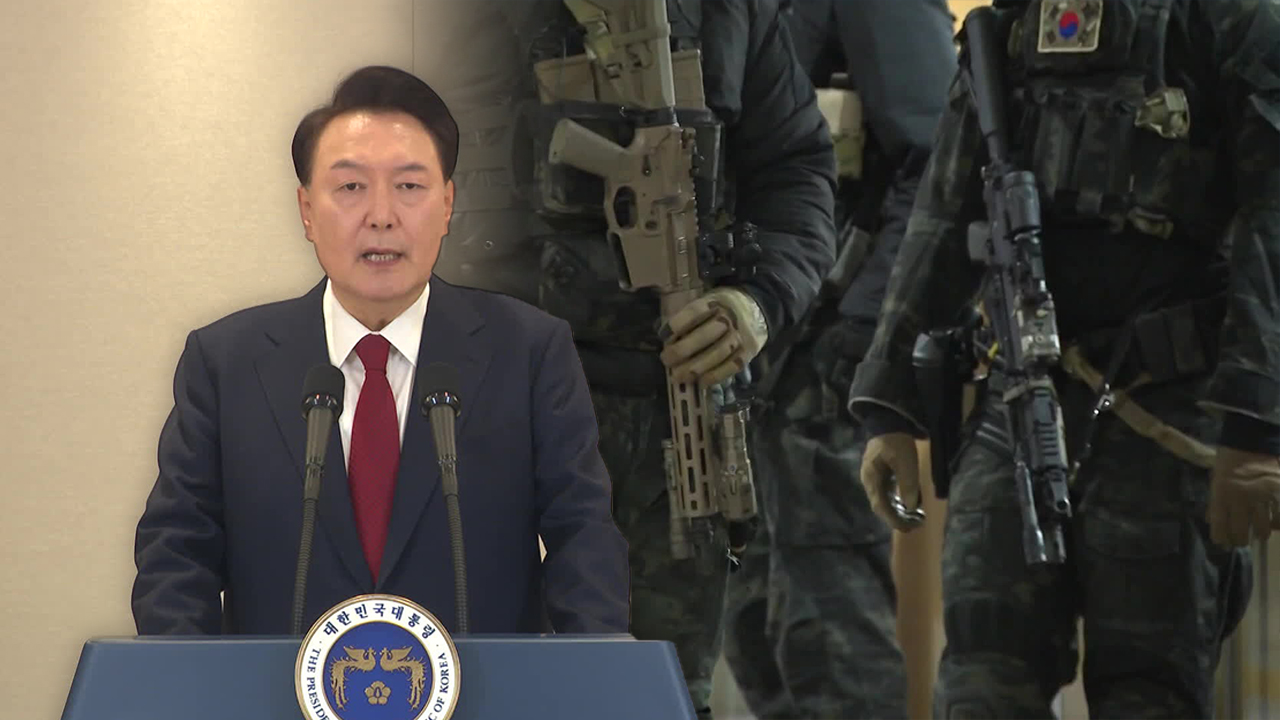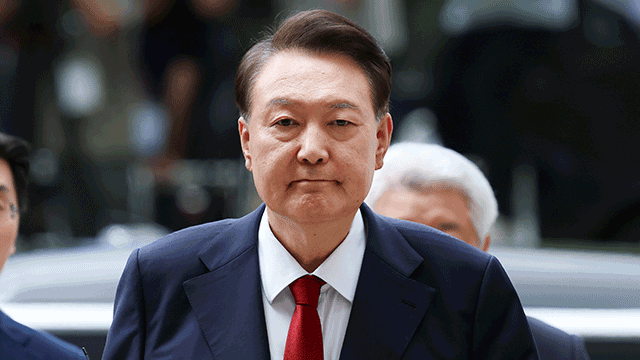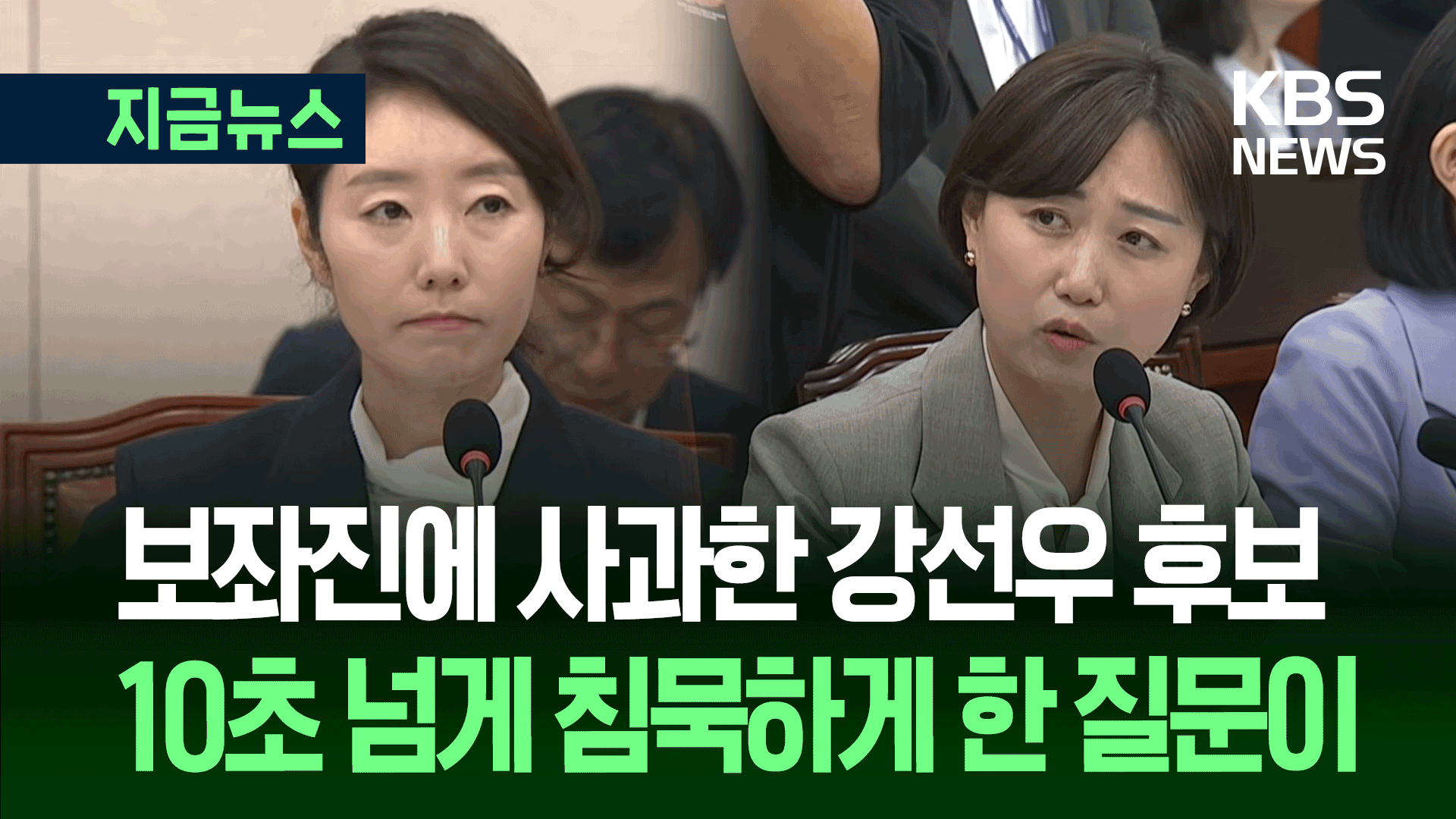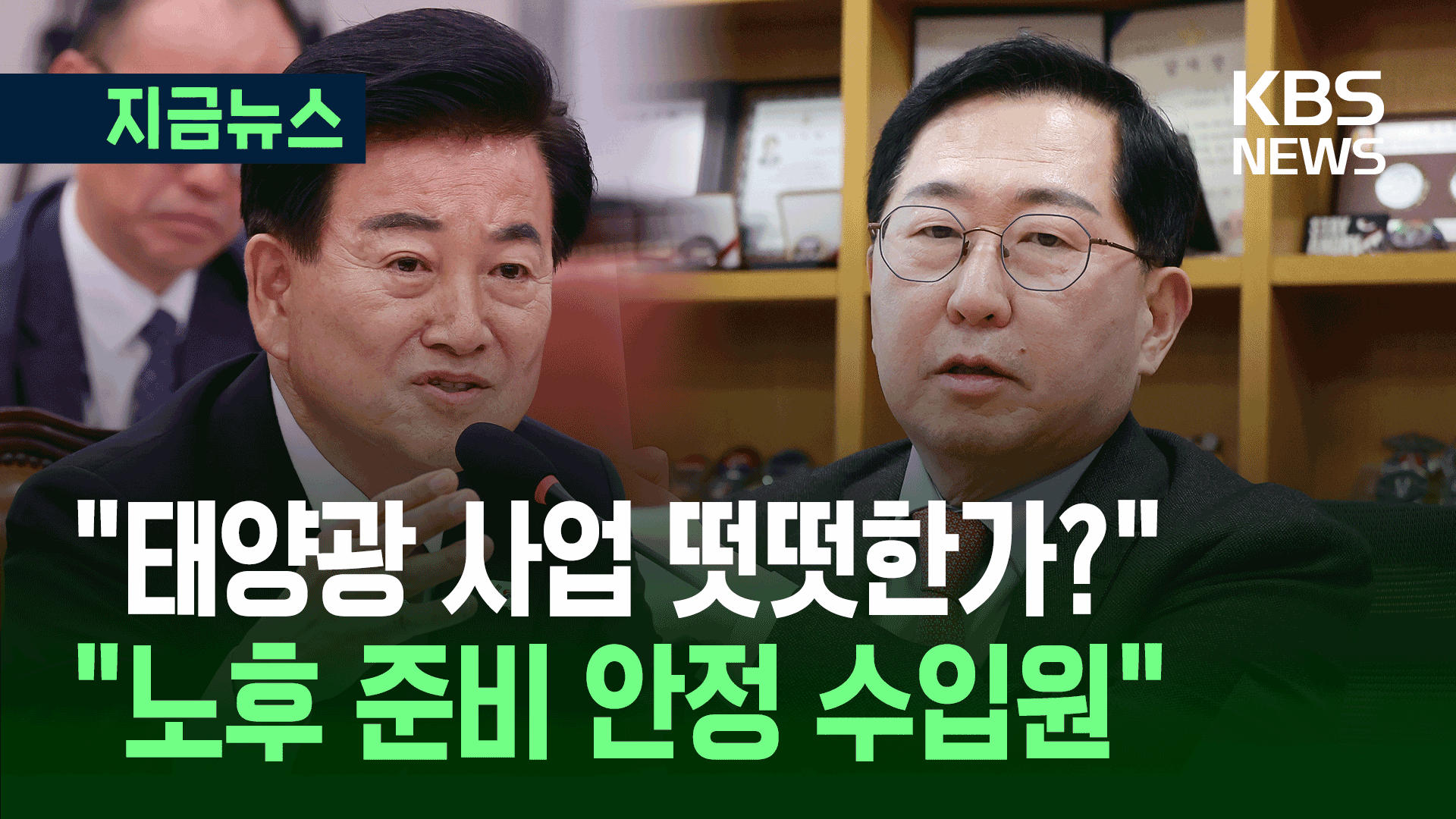Impeacement of President Yoon: Unconstitutionality and illegality of martial law at issue
입력 2024.12.16 (23:56)
읽어주기 기능은 크롬기반의
브라우저에서만 사용하실 수 있습니다.
[Anchor]
Former President Park Geun-hye was impeached due to the state affairs manipulation scandal and inadequate response to the Sewol ferry disaster.
Former President Roh Moo-hyun was impeached for violating election laws after publicly supporting the Open Uri Party.
In both impeachment trials, the Constitutional Court recognized that there were violations of the Constitution or laws.
However, the conclusions diverged between acceptance and rejection.
The Constitutional Court accepted the impeachment of former President Park, stating that "the legal violations are serious enough to warrant removal."
In contrast, regarding former President Roh, it stated that "the reasons such as election law violations are difficult to consider as serious enough to remove a president elected directly by the people," and thus rejected the impeachment trial.
Ultimately, the severity of the legal violations became the standard.
What are the key issues in the impeachment trial of President Yoon Suk Yeol? Reporter Park Kyung-jun analyzed it.
[Report]
The reasons for the impeachment of President Yoon Suk Yeol can be broadly categorized into two: the constitutionality and legality of declaring emergency martial law and the charge of being the leader of an insurrection.
First, regarding the declaration of martial law.
President Yoon claims that the emergency martial law was unavoidable to prevent the opposition party from monopolizing power.
[Dec. 12: "It was an unavoidable emergency measure to appeal to the people in a national crisis to restore and protect the free democratic constitutional order...."]
The National Assembly, which initiated the impeachment, argues that the current situation does not meet the requirements for declaring martial law.
Therefore, the Constitutional Court is expected to examine whether the 'legislative dictatorship' of the opposition can be considered a 'national emergency' and whether the content of the proclamation and the martial law procedures violate the Constitution.
If it is revealed that there were orders to arrest key figures such as politicians, it could be regarded as a serious legal violation, increasing the likelihood of acceptance.
The other reason for impeachment, the charge of insurrection, centers on whether the allegations are acknowledged.
President Yoon has maintained that the emergency martial law is an act of governance and not an insurrection.
[Dec. 12: "How can the constitutional decision and act of governance by the president be considered an insurrection?"]
Therefore, it is expected that there will be a fierce dispute between President Yoon's side and the National Assembly regarding whether the deployment of troops to the National Assembly during the emergency martial law was a minimal measure for maintaining order or an armed uprising aimed at disrupting the Constitution.
The Constitutional Court judges are likely to consider these issues and determine whether the severity of the violations of the Constitution and laws outweighs the benefits of maintaining the presidency.
This is KBS News, Park Kyung-jun.
Former President Park Geun-hye was impeached due to the state affairs manipulation scandal and inadequate response to the Sewol ferry disaster.
Former President Roh Moo-hyun was impeached for violating election laws after publicly supporting the Open Uri Party.
In both impeachment trials, the Constitutional Court recognized that there were violations of the Constitution or laws.
However, the conclusions diverged between acceptance and rejection.
The Constitutional Court accepted the impeachment of former President Park, stating that "the legal violations are serious enough to warrant removal."
In contrast, regarding former President Roh, it stated that "the reasons such as election law violations are difficult to consider as serious enough to remove a president elected directly by the people," and thus rejected the impeachment trial.
Ultimately, the severity of the legal violations became the standard.
What are the key issues in the impeachment trial of President Yoon Suk Yeol? Reporter Park Kyung-jun analyzed it.
[Report]
The reasons for the impeachment of President Yoon Suk Yeol can be broadly categorized into two: the constitutionality and legality of declaring emergency martial law and the charge of being the leader of an insurrection.
First, regarding the declaration of martial law.
President Yoon claims that the emergency martial law was unavoidable to prevent the opposition party from monopolizing power.
[Dec. 12: "It was an unavoidable emergency measure to appeal to the people in a national crisis to restore and protect the free democratic constitutional order...."]
The National Assembly, which initiated the impeachment, argues that the current situation does not meet the requirements for declaring martial law.
Therefore, the Constitutional Court is expected to examine whether the 'legislative dictatorship' of the opposition can be considered a 'national emergency' and whether the content of the proclamation and the martial law procedures violate the Constitution.
If it is revealed that there were orders to arrest key figures such as politicians, it could be regarded as a serious legal violation, increasing the likelihood of acceptance.
The other reason for impeachment, the charge of insurrection, centers on whether the allegations are acknowledged.
President Yoon has maintained that the emergency martial law is an act of governance and not an insurrection.
[Dec. 12: "How can the constitutional decision and act of governance by the president be considered an insurrection?"]
Therefore, it is expected that there will be a fierce dispute between President Yoon's side and the National Assembly regarding whether the deployment of troops to the National Assembly during the emergency martial law was a minimal measure for maintaining order or an armed uprising aimed at disrupting the Constitution.
The Constitutional Court judges are likely to consider these issues and determine whether the severity of the violations of the Constitution and laws outweighs the benefits of maintaining the presidency.
This is KBS News, Park Kyung-jun.
■ 제보하기
▷ 카카오톡 : 'KBS제보' 검색, 채널 추가
▷ 전화 : 02-781-1234, 4444
▷ 이메일 : kbs1234@kbs.co.kr
▷ 유튜브, 네이버, 카카오에서도 KBS뉴스를 구독해주세요!
- Impeacement of President Yoon: Unconstitutionality and illegality of martial law at issue
-
- 입력 2024-12-16 23:56:34

[Anchor]
Former President Park Geun-hye was impeached due to the state affairs manipulation scandal and inadequate response to the Sewol ferry disaster.
Former President Roh Moo-hyun was impeached for violating election laws after publicly supporting the Open Uri Party.
In both impeachment trials, the Constitutional Court recognized that there were violations of the Constitution or laws.
However, the conclusions diverged between acceptance and rejection.
The Constitutional Court accepted the impeachment of former President Park, stating that "the legal violations are serious enough to warrant removal."
In contrast, regarding former President Roh, it stated that "the reasons such as election law violations are difficult to consider as serious enough to remove a president elected directly by the people," and thus rejected the impeachment trial.
Ultimately, the severity of the legal violations became the standard.
What are the key issues in the impeachment trial of President Yoon Suk Yeol? Reporter Park Kyung-jun analyzed it.
[Report]
The reasons for the impeachment of President Yoon Suk Yeol can be broadly categorized into two: the constitutionality and legality of declaring emergency martial law and the charge of being the leader of an insurrection.
First, regarding the declaration of martial law.
President Yoon claims that the emergency martial law was unavoidable to prevent the opposition party from monopolizing power.
[Dec. 12: "It was an unavoidable emergency measure to appeal to the people in a national crisis to restore and protect the free democratic constitutional order...."]
The National Assembly, which initiated the impeachment, argues that the current situation does not meet the requirements for declaring martial law.
Therefore, the Constitutional Court is expected to examine whether the 'legislative dictatorship' of the opposition can be considered a 'national emergency' and whether the content of the proclamation and the martial law procedures violate the Constitution.
If it is revealed that there were orders to arrest key figures such as politicians, it could be regarded as a serious legal violation, increasing the likelihood of acceptance.
The other reason for impeachment, the charge of insurrection, centers on whether the allegations are acknowledged.
President Yoon has maintained that the emergency martial law is an act of governance and not an insurrection.
[Dec. 12: "How can the constitutional decision and act of governance by the president be considered an insurrection?"]
Therefore, it is expected that there will be a fierce dispute between President Yoon's side and the National Assembly regarding whether the deployment of troops to the National Assembly during the emergency martial law was a minimal measure for maintaining order or an armed uprising aimed at disrupting the Constitution.
The Constitutional Court judges are likely to consider these issues and determine whether the severity of the violations of the Constitution and laws outweighs the benefits of maintaining the presidency.
This is KBS News, Park Kyung-jun.
Former President Park Geun-hye was impeached due to the state affairs manipulation scandal and inadequate response to the Sewol ferry disaster.
Former President Roh Moo-hyun was impeached for violating election laws after publicly supporting the Open Uri Party.
In both impeachment trials, the Constitutional Court recognized that there were violations of the Constitution or laws.
However, the conclusions diverged between acceptance and rejection.
The Constitutional Court accepted the impeachment of former President Park, stating that "the legal violations are serious enough to warrant removal."
In contrast, regarding former President Roh, it stated that "the reasons such as election law violations are difficult to consider as serious enough to remove a president elected directly by the people," and thus rejected the impeachment trial.
Ultimately, the severity of the legal violations became the standard.
What are the key issues in the impeachment trial of President Yoon Suk Yeol? Reporter Park Kyung-jun analyzed it.
[Report]
The reasons for the impeachment of President Yoon Suk Yeol can be broadly categorized into two: the constitutionality and legality of declaring emergency martial law and the charge of being the leader of an insurrection.
First, regarding the declaration of martial law.
President Yoon claims that the emergency martial law was unavoidable to prevent the opposition party from monopolizing power.
[Dec. 12: "It was an unavoidable emergency measure to appeal to the people in a national crisis to restore and protect the free democratic constitutional order...."]
The National Assembly, which initiated the impeachment, argues that the current situation does not meet the requirements for declaring martial law.
Therefore, the Constitutional Court is expected to examine whether the 'legislative dictatorship' of the opposition can be considered a 'national emergency' and whether the content of the proclamation and the martial law procedures violate the Constitution.
If it is revealed that there were orders to arrest key figures such as politicians, it could be regarded as a serious legal violation, increasing the likelihood of acceptance.
The other reason for impeachment, the charge of insurrection, centers on whether the allegations are acknowledged.
President Yoon has maintained that the emergency martial law is an act of governance and not an insurrection.
[Dec. 12: "How can the constitutional decision and act of governance by the president be considered an insurrection?"]
Therefore, it is expected that there will be a fierce dispute between President Yoon's side and the National Assembly regarding whether the deployment of troops to the National Assembly during the emergency martial law was a minimal measure for maintaining order or an armed uprising aimed at disrupting the Constitution.
The Constitutional Court judges are likely to consider these issues and determine whether the severity of the violations of the Constitution and laws outweighs the benefits of maintaining the presidency.
This is KBS News, Park Kyung-jun.
-
-

박경준 기자 kjpark@kbs.co.kr
박경준 기자의 기사 모음
-
이 기사가 좋으셨다면
-
좋아요
0
-
응원해요
0
-
후속 원해요
0











![[속보] 범학계 국민검증단 “이진숙 논문표절 심각…자진사퇴해야”](/data/news/2025/07/14/20250714_FOVMeX.jpg)



이 기사에 대한 의견을 남겨주세요.